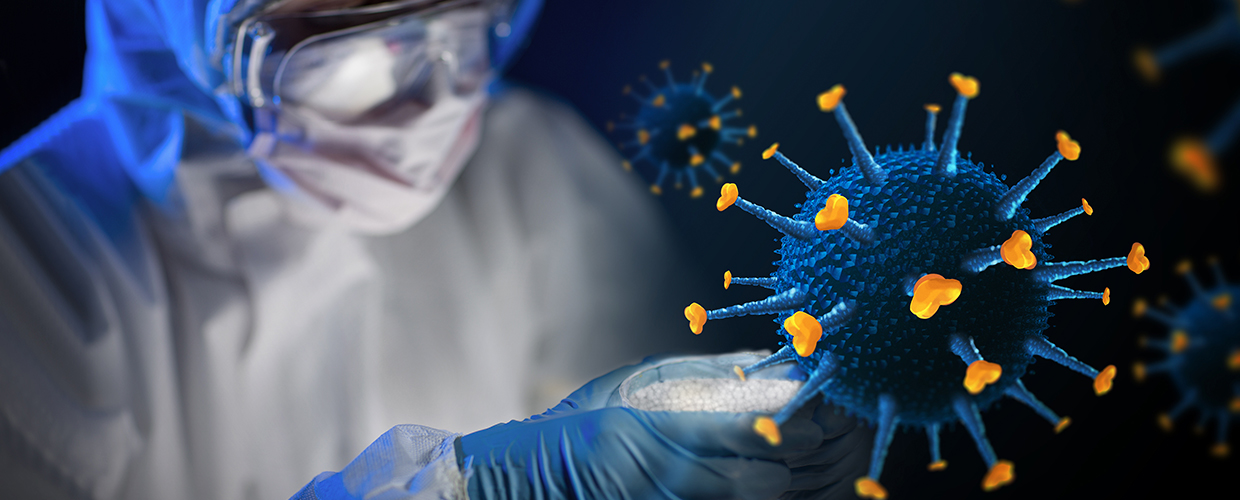Antivirus research
PBM therapy

As COVID-19 pandemic has impacted worldwide, increasing number of studies published are subjected to PBM therapy on COVID prevention and treatment.
Out of the studies published in the National Institute of Health’s Library of Medicine, we would introduce few below.
-
A Potential Role for Photobiomodulation Therapy in Disease Treatment and Prevention in the Era of COVID-19 View in detail
Ann Liebert, Brian Bicknell, Wayne Markman, Hosen Kiat Aging and Disease (2020) 11(6): 1352-1362.
The treatment may potentially be advantageous for those infected with the virus, those who have a slow recovery from the effects of the virus and those who have been denied their normal exercise/rehabilitation programs due to the isolation restrictions that have been imposed to control the COVID-19 pandemic.
-
The first U.S. coronavirus disease 2019 patient with lung injury treated with photobiomodulation therapy experienced improved respiratory indices, radiological findings, and oxygen requirements.
Retrieved from https://www.healthleadersmedia.com/clinical-care/can-laser-therapy-treat-covid-19-pneumonia View in detail
Sept 10, 2020
Hydrogen Inhalation Therapy
In China, clinical trials (for public approval) on molecular hydrogen inhalation therapy as a means of treating COVID-19 began in Feb 2020. This test has been opened to the International Standard-based protocol and was also released in English (Registration no. CTR2000029739).
The chief doctor responsible for this test was Dr. Nan-shan Zhong, who had been appointed as the top chief of the “upper expert team” of the National Health and Health Commission of China.
Dr. Zhong published a study on the inhibition of severity and improvement of breathing difficulties of new COVID patients through hydrogen inhalation therapy. In addition, he argued that hydrogen inhalation therapy should be the standard treatment method for treating COVID patients.
Disclaimer: This content consists of medical papers and academic information and is not intended to diagnose,
treat diseases, or replace a doctor's advice, and all outcomes may vary from person to person.
-
BAHI Therapy
-
Immune Care Magazine
-
Research/Education
-
Find the center
-
About Hue Light
-
Product Site
-
Hue Light USA


 English
English